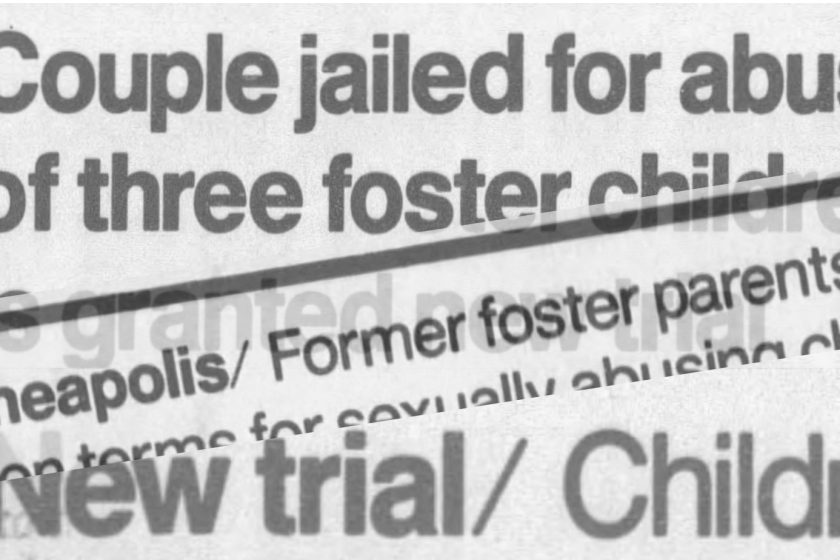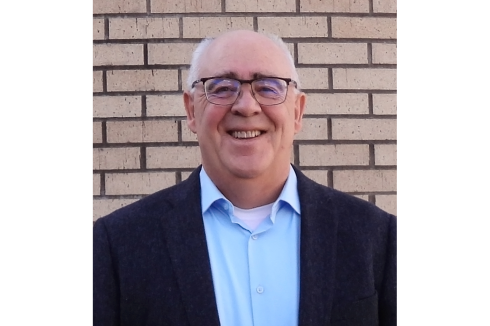MINNEAPOLIS — In the early 1990s, allegations of sexual abuse against two Minnesota foster parents dominated headlines. By 1993, the headlines painted a different picture: Ronald and Pauline Goldenstein had been framed.
Ronald Goldenstein was convicted in 1992 on two counts of criminal sexual conduct after a jury determined he was guilty of raping an 8-year-old girl and a 5-year-old girl. During a shared trial, Pauline Goldenstein was found guilty of one count of criminal sexual conduct based on allegations that she had sexually abused a 7-year-old boy.
ADVERTISEMENT
The three victims were siblings, placed in the Goldenstein's foster home in 1987, after years of abuse and neglect.
Ronald and Pauline each received a 10-year prison sentence, handed down by Judge Mary Winter after she determined the foster parents deserved more than the standard state guideline of seven years, largely due to the heinous nature of the crimes.

Yet Ronald and Pauline Goldenstein, who had begun fostering children 10 years prior to the allegations, later had their convictions rescinded — and the truth came out.
In August 1993, the Minnesota Court of Appeals reversed the convictions and ordered a new trial for the couple.
The court determined the couple’s constitutional right to present a defense was violated as the judge would not allow the defense to present evidence that the children made false accusations of sexual abuse against a social worker.
The judge also denied their request to call in expert testimony to speak to the effects of each sibling's fetal alcohol syndrome diagnosis and its impact on memory and behavior.
Child protection records, which detailed the children's exposure to sexual abuse, neglect and trauma, were not allowed to be presented during trial.
ADVERTISEMENT
In addition to the denial of evidence and expert testimony, the appeals court determined the prosecution relied heavily on hearsay, rather than evidence.
During the initial trial, one physician testified that, based on medical examinations conducted on the children, one of the children presented signs consistent with sexual abuse — yet stopped short of testifying that the signs proved sexual abuse.
“With no physical evidence except medical evidence consistent with sexual abuse, the state’s case rested nearly exclusively on the children’s out-of-court statements. Consequently, the veracity of the children when making those statements was critical to the defense,” the appeals court said in its decision.
After a new trial was granted to the Goldenstein, the prosecution dropped the case. Ronald and Pauline Goldenstein, who had no biological children, were free — yet in many ways, they weren’t.
The charges — and trial — garnered regional and national media attention. For years, their names appeared alongside heinous allegations, and their decade-long role as foster parents was crushed.

Before the allegations
When the three siblings were placed with Ronald and Pauline Goldenstein in 1987, they had already endured extreme neglect, along with emotional and sexual abuse.
ADVERTISEMENT
The state first became involved in 1986 when their biological mother abandoned them. Law enforcement officials discovered two of the children, unattended, on the roof of their home. The third child was found in a back alley without clothes, according to court documents from the appeal.
At the time of the incident, the children were 4, 3 and 1.
In March 1987, law enforcement responded to another call. This time, the children were found wandering outside, wearing underwear that was soaked with urine. Inside the house, law enforcement discovered they had no heat or electricity.
By the time the siblings were placed with Ronald and Pauline Goldenstein, the couple began to see the implications of neglect and abuse suffered by the children. The couple testified in their initial trial that all three children demonstrated overly sexual behavior, which concerned the foster parents.
Their concerns prompted them to arrange therapy sessions for all three children.
The primary therapist for the siblings testified during court that no allegations were made during the three-year course of treatment.
One year before being placed with the Goldenstein, a sexual abuse assessment was conducted by child protection services, which determined a “known sexual offender” had assaulted the boy, and forced him to perform acts while photographing him. The three siblings were living with a grandparent at the time, according to court documents.
ADVERTISEMENT
From there, they were placed with Ronald and Pauline Goldenstein.
The allegations were a first for the Goldenstein, who had provided foster care for a decade.
The couple maintained their innocence during the trial and after sentencing.
Ronald Goldenstein was 61 when he died in 2001. His obituary said he remained married to Pauline.









